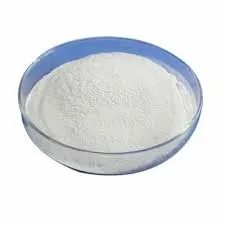
Aug . 14, 2024 16:53 Back to list
Hydroxypropyl Methyl Cellulose Suppliers and Their Role in Modern Product Formulations
Hydroxypropyl Methyl Cellulose A Versatile Polymer from Leading Manufacturers
Hydroxypropyl Methyl Cellulose (HPMC) is a widely utilized polymer known for its versatile properties and applications across various industries. This cellulose derivative is synthesized through the etherification of cellulose, resulting in a compound that is soluble in water and exhibits a range of characteristics that make it indispensable in many formulations. Leading manufacturers of HPMC play a vital role in supplying this essential polymer to several sectors, including pharmaceuticals, food, construction, and personal care.
Hydroxypropyl Methyl Cellulose A Versatile Polymer from Leading Manufacturers
In the food industry, HPMC is valued for its ability to improve texture and stability in a wide array of food products. It acts as a thickening agent in sauces, dressings, and soups, enhancing mouthfeel and overall consumer experience. Additionally, HPMC is frequently used as a fat replacer in low-calorie products, aiding in maintaining the desired texture while reducing caloric content. Furthermore, its emulsifying properties make it an ideal ingredient in gluten-free baking applications, where it assists in providing structure and moisture retention.
hydroxypropyl methyl cellulose manufacturer

The construction industry has also recognized the benefits of HPMC, particularly in the formulation of mortar and concrete. Manufacturers incorporate HPMC into these mixtures to improve workability, increase adhesion, and enhance water-retention properties. This results in stronger and more durable building materials, which are essential for modern construction projects. The use of HPMC in tile adhesives, drywall joint compounds, and cementitious products has become increasingly commonplace due to its ability to improve performance and application ease.
In personal care and cosmetics, HPMC is frequently added to creams, lotions, and shampoos to act as a thickener and emulsifier. Its non-toxic and non-irritating nature makes it suitable for sensitive skin formulations, appealing to a wide range of consumers who seek safe and effective personal care products. Moreover, its film-forming properties allow for the creation of long-lasting, water-resistant coatings in various cosmetic applications.
Given the diverse applications of HPMC, it is essential to work with reputable manufacturers that ensure high-quality production processes and meet strict regulatory standards. Leading producers invest in advanced technologies and adhere to Good Manufacturing Practices (GMP) to guarantee the purity and performance of their HPMC products. Additionally, many manufacturers offer customized solutions tailored to the specific needs of various industries, providing formulations that meet unique performance criteria.
In conclusion, Hydroxypropyl Methyl Cellulose stands out as a versatile polymer with a myriad of applications across multiple sectors. The contributions of leading HPMC manufacturers cannot be overstated, as they play a crucial role in providing high-quality materials that enhance product performance and quality. As industries continue to evolve, the demand for HPMC is expected to grow, further cementing its position as a fundamental ingredient in modern formulations. With its unique properties and adaptability, HPMC will undoubtedly remain a key focus for manufacturers and formulators aiming to innovate and improve their product offerings.
-
Versatile Hpmc Uses in Different Industries
NewsJun.19,2025
-
Redispersible Powder's Role in Enhancing Durability of Construction Products
NewsJun.19,2025
-
Hydroxyethyl Cellulose Applications Driving Green Industrial Processes
NewsJun.19,2025
-
Exploring Different Redispersible Polymer Powder
NewsJun.19,2025
-
Choosing the Right Mortar Bonding Agent
NewsJun.19,2025
-
Applications and Significance of China Hpmc in Modern Industries
NewsJun.19,2025







